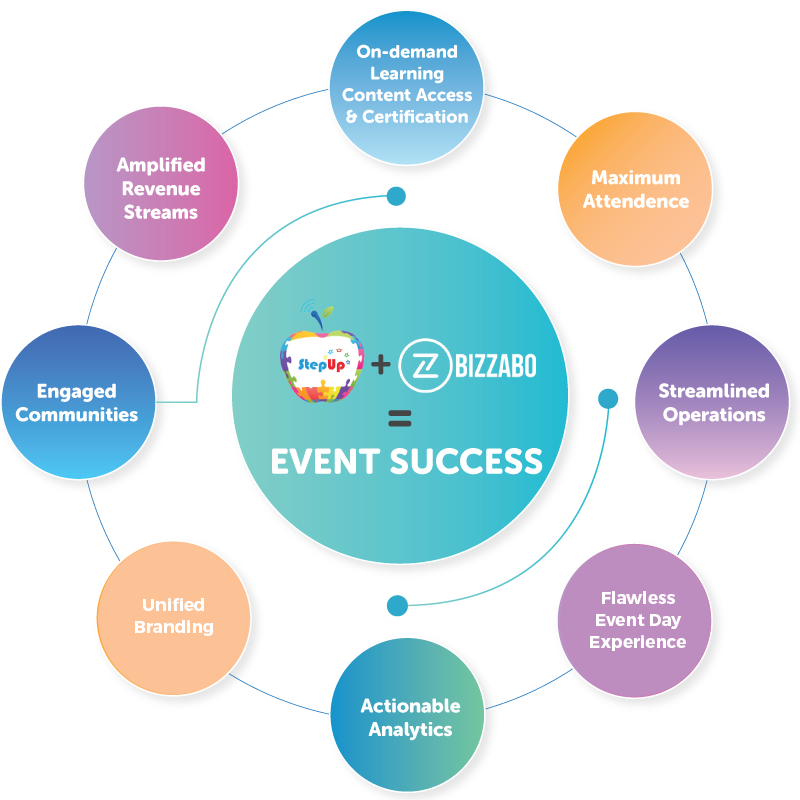Event Management Education is essential for those wanting a successful career in planning and organizing events. This field teaches skills needed to create memorable experiences.
Event management is not just about arranging parties or meetings. It involves managing budgets, negotiating with vendors, and ensuring everything runs smoothly. Education in this field can provide the tools to handle these tasks effectively. Courses often cover logistics, marketing, and risk management, giving a comprehensive understanding of what it takes to deliver a successful event.
With the right education, you can learn to manage different types of events, from corporate gatherings to weddings. This knowledge can open doors to various opportunities in the event planning industry. Dive in to explore what event management education can offer you.
Introduction To Event Management
Event management is a growing field with endless opportunities. It involves planning, organizing, and executing events. It requires creativity, strategic thinking, and excellent communication skills. This introduction will provide a glimpse into what event management entails and its importance in today’s world.
What Is Event Management?
Event management involves planning and coordinating events. These events can range from small gatherings to large conferences. It includes tasks like selecting venues, arranging catering, and managing budgets. It also involves ensuring that everything runs smoothly on the event day. Event managers work behind the scenes to make events memorable and successful.
Importance In Today’s World
Event management has become vital in today’s world. Events help businesses grow and connect with their audience. They also play a significant role in personal milestones like weddings and birthdays. Well-managed events leave lasting impressions on attendees. They foster relationships and create opportunities for networking. In our fast-paced world, the demand for skilled event managers is higher than ever.
Educational Pathways
Event management is a dynamic field. It requires a mix of creativity and organizational skills. To excel, you need proper education. This section explores two key educational pathways: degree programs and certification courses.
Degree Programs
A degree in event management provides a solid foundation. It covers essential topics like event planning, marketing, and finance. These programs often include practical experiences, such as internships. Here is a table of common subjects covered in degree programs:
| Subject | Description |
|---|---|
| Event Planning | Learn to organize and manage events. |
| Marketing | Understand how to promote events effectively. |
| Finance | Manage event budgets and financial planning. |
Degree programs can be completed in two to four years. They offer a comprehensive education, preparing you for various roles in the event management industry.
Certification Courses
Certification courses are shorter and more focused. They are ideal for those who want to enhance specific skills. These courses can be completed in a few months. Some popular certification courses include:
- Certified Meeting Professional (CMP)
- Certified Special Events Professional (CSEP)
- Global Management Certificate (GMC)
Certification courses often cover topics like:
- Event Coordination
- Risk Management
- Event Technology
These courses offer flexibility and can be taken online. They are a great way to stay updated with industry trends and best practices.
Key Skills To Develop
Event management education is more than just theory. It requires practical skills. These skills help in planning, organizing, and executing events smoothly. Developing these skills can make you a successful event manager. Let’s explore some of the key skills you need to develop.
Organizational Skills
Organizational skills are crucial in event management. You must manage multiple tasks at once. This includes planning timelines, coordinating with vendors, and ensuring everything runs smoothly. Having a system to track all these elements is essential.
- Time Management: Prioritize tasks and meet deadlines.
- Task Management: Use tools to keep track of tasks and responsibilities.
- Budget Management: Allocate resources efficiently to avoid overspending.
Using calendars, to-do lists, and project management software can help. These tools ensure you stay on top of your responsibilities. They also help in avoiding last-minute rushes.
Communication Skills
Effective communication is vital in event management. You need to clearly convey your ideas. This helps in building strong relationships with clients, vendors, and team members.
- Verbal Communication: Speak clearly and confidently.
- Written Communication: Write emails and reports that are clear and concise.
- Listening Skills: Pay attention to what others are saying.
Good communication helps in understanding client needs better. It also ensures that everyone involved in the event is on the same page. This reduces the chances of misunderstandings. In summary, developing organizational and communication skills is essential in event management. These skills help in planning and executing successful events. They also help in building strong professional relationships.

Credit: www.amazon.com
Specializations In Event Management
Event management education offers diverse specializations. Students can focus on different types of events. Each specialization requires unique skills and knowledge. Understanding these specializations helps in career planning.
Corporate Events
Corporate events include conferences, seminars, and product launches. They require detailed planning and coordination. The goal is to project a professional image. Key skills include:
- Project management: Overseeing event timelines and tasks.
- Budgeting: Managing costs and financial resources.
- Vendor coordination: Working with suppliers and service providers.
- Communication: Effective interaction with stakeholders.
Corporate event planners must be detail-oriented. They need to handle logistical challenges. A successful corporate event boosts a company’s reputation.
Social Events
Social events include weddings, parties, and celebrations. These events focus on personal milestones and social interactions. Important skills for social event planners include:
- Creativity: Designing unique and memorable experiences.
- Organization: Coordinating multiple elements seamlessly.
- Interpersonal skills: Building relationships with clients and guests.
- Problem-solving: Handling unforeseen issues efficiently.
Social event planners must be adaptable. They need to understand their clients’ visions. Successful social events create lasting memories.
Career Opportunities
Event Management Education opens many career opportunities. This field is dynamic and exciting. Professionals in this industry plan, organize, and execute events. They work on weddings, conferences, festivals, and corporate meetings. Several roles are available for those with the right skills and knowledge.
Event Planner
Event Planners are essential in the event management industry. They coordinate all aspects of professional meetings and events. This includes venue selection, budgeting, and scheduling. They also handle logistics like transportation and accommodation. Event Planners ensure every event runs smoothly. Attention to detail and strong organizational skills are crucial. They often work with clients to understand their vision. Then, they bring that vision to life.
Venue Manager
Venue Managers oversee the operations of event spaces. They ensure the venue is ready for events. This includes maintenance, staffing, and security. Venue Managers work closely with Event Planners. They make sure the venue meets the event’s requirements. They also manage bookings and coordinate with vendors. Strong communication and problem-solving skills are vital. Venue Managers keep everything running efficiently.

Credit: www.lumoslearning.com
Industry Trends
Event management education is evolving rapidly with new industry trends. Students must stay updated to thrive in this dynamic field. Keeping an eye on current trends is crucial for success.
Technology Integration
Technology plays a significant role in modern event management. Virtual reality (VR) and augmented reality (AR) are transforming event experiences. These technologies allow for immersive and interactive events. Attendees can participate virtually, breaking geographical barriers. Mobile apps are also essential tools for event planners. They streamline registration, provide real-time updates, and enhance attendee engagement. Social media integration is another key trend. It helps in promoting events and engaging with the audience effectively.
Sustainability Practices
Sustainability is a growing focus in event management education. Planners are adopting eco-friendly practices to reduce environmental impact. Using reusable materials and reducing waste are common strategies. Venues are chosen based on their green certifications and sustainability policies. Sustainable catering options are also gaining popularity. These practices not only benefit the environment but also attract conscious attendees. Educating students on these practices prepares them for a responsible career in event management.
Challenges And Solutions
Event management education presents unique challenges. Students must balance theory and practice. Understanding these challenges is key to success. Here, we explore common issues and practical solutions.
Common Challenges
Event management students face numerous challenges. A few common ones include:
- Time Management: Balancing coursework and practical experience.
- Financial Constraints: Funding education and projects.
- Resource Availability: Access to necessary tools and materials.
- Networking: Building industry connections.
These challenges can seem overwhelming. But each has a solution.
Overcoming Obstacles
Addressing these obstacles requires strategic approaches. Here are some effective solutions:
- Time Management: Use planners and digital calendars. Prioritize tasks and set realistic goals.
- Financial Constraints: Seek scholarships and grants. Consider part-time jobs related to the industry.
- Resource Availability: Utilize school resources. Collaborate with peers to share materials.
- Networking: Attend industry events. Join professional organizations and online forums.
These strategies can help manage the challenges of event management education.
| Challenge | Solution |
|---|---|
| Time Management | Use planners and set priorities. |
| Financial Constraints | Seek scholarships and part-time jobs. |
| Resource Availability | Utilize school resources, and collaborate. |
| Networking | Attend events, and join organizations. |
Effective solutions make challenges manageable. They pave the way for success in event management education.
Future Of Event Management
The future of event management looks bright and promising. As the industry evolves, new trends and opportunities are emerging. These changes are shaping the way events are planned and executed. With advancements in technology and a growing global market, aspiring event managers have much to look forward to.
Emerging Trends
Technology is transforming event management. Virtual events and hybrid events are becoming more common. These events combine in-person and online experiences, reaching a wider audience. Artificial Intelligence (AI) is being used to personalize attendee experiences. AI can help with event planning, from scheduling to feedback collection. Another trend is the focus on sustainability. Event planners are now prioritizing eco-friendly practices. This includes reducing waste and using sustainable materials. Green events are not just a trend but a necessity for the future.
Global Opportunities
The event management industry is expanding globally. There are countless opportunities for event managers worldwide. International events are on the rise, creating a demand for skilled professionals. This global expansion offers a chance to work in diverse environments and cultures. Additionally, networking and collaboration across borders are becoming easier. Technology enables event managers to connect with peers and clients globally. This interconnected world opens doors to new markets and ideas. In summary, the future of event management is filled with exciting trends and global opportunities. Aspiring event managers should stay updated with these changes to succeed in this dynamic field.

Credit: www.planningpod.com
Frequently Asked Questions
What Is Event Management Education?
Event management education involves training individuals in planning, organizing, and executing events. It covers various aspects, including marketing, logistics, and budgeting.
Why Is Event Management Important?
Event management is crucial for the successful execution of events. It ensures that all elements come together smoothly, creating a memorable experience.
What Skills Do You Learn In Event Management?
In event management, you learn skills like project planning, marketing, budgeting, and team coordination. These skills are essential for organizing successful events.
How Can Event Management Courses Benefit Your Career?
Event management courses provide practical knowledge and industry insights. They enhance your organizational skills, making you more employable in the event planning industry.
Conclusion
Event management education opens many career opportunities. It equips students with essential skills. These skills include planning, organizing, and executing events. Practical knowledge is also a key part of the curriculum. Students learn real-world applications through internships. This education builds a strong foundation for a rewarding career.
Start your journey in event management today. It’s a path full of creativity and excitement. Investing in this education can lead to a successful future.


